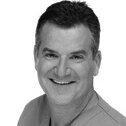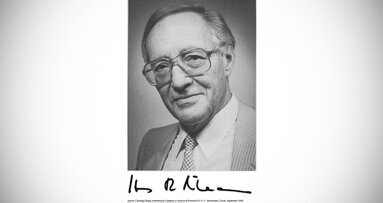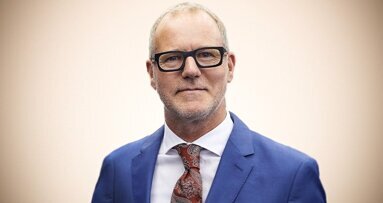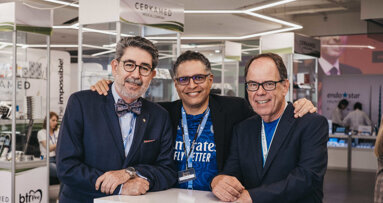As a specialist, I have seen a significant portion of my patients present after endodontic treatment has failed or was abandoned mid-treatment owing to an unforeseen complication. Throughout my career, I have experienced my fair share of my own failed treatments, and I have witnessed the distress these situations can cause my colleagues. I certainly know they have caused me many a sleepless night.
Among dentists, perfectionism is common. Many of us have strived for excellence our entire lives, so when mistakes happen—and they inevitably do—we become like an ostrich and bury our heads in the proverbial sand, hoping the problem just goes away. Choosing not to dwell on failures ensures that they will continue to happen, and making this choice means the loss of what parents love to call a “teachable moment”.
Businesses work tirelessly to anticipate mistakes and outright failures in the hope that they can avoid problems and, when errors do occur, learn how to do better in the future. Dr Abraham Wald, a Hungarian mathematician, took survivorship bias into consideration during World War II when calculating how to minimise the loss of bombers. When planes riddled with bullet holes made it back, the first thought was to reinforce the planes where they noticed the shrapnel had done the most damage. Wald thought otherwise. He rightly stated that these planes returned safely despite the damage, so it was best to reinforce planes in between these “most-hit” areas, as that was where the planes that had not returned had been fatally damaged. It is crucial, therefore, that we share our failures with an open mind and enthusiasm as we do our successes, so that we may all learn how to serve our patients even better. Imagine an Instagram page devoted to failed treatments! It may be difficult to post but, oh, the learning that could be had!
Owing to the nature of our work, information sharing does not happen as often as it should. Clinicians in hospitals are mandated to share their errors in morbidity and mortality conferences to ensure that, to the best of their ability, these errors never happen again. Dentists often work in isolation, toiling away in their own clinics without the benefit of regular interactions with their colleagues in a “safe space” where ego is removed from the equation in order to ensure the best in patient care. I am lucky to be a part of a large network of clinicians with dedicated support teams who regularly host study clubs to openly discuss failures so that we may objectively dissect the treatment into its component parts to attempt to find the source of the problem.
We need to reframe the lens through which we view failure. Mistakes are painful, but from defeat, with a focus on education and mutual collegial support, we can learn more and do better.
Many new technologies have been emerging during the last twelve months which made 2011 an interesting year for dentistry. In this first part of an exclusive...
Prof. Hans R. Mühlemann, or “Mühli” as he was endearingly called by friends and colleagues, was a pioneer in the research and treatment of caries and ...
From 1 to 3 October, the 16th World Congress in Laser Dentistry will be hosted in Aachen in Germany, giving international dental professionals the ...
RICHMOND, Va., US: No orthodontic clinician in the world was left unaffected by the extreme adaptation to practice and procedure required during the ...
LJUBLJANA, Slovenia: At this year’s International Dental Show (IDS), held from 25 to 29 March in Cologne in Germany, more than 135,000 visitors from 156 ...
How to achieve greater efficiency, safety and job satisfaction in endodontics—endodontist and trainer Dr Sabine Remensberger has been sharing her ...
KNOXVILLE, Tenn., U.S.: Dentists support people in keeping or regaining their smiles. More and more, esthetics is playing an important role in dentistry in ...
NEW YORK, U.S.: Clear aligner therapy continues to grow in popularity. Before it was introduced, malocclusion in teenagers was typically treated using fixed...
ROOTS SUMMIT 2024 is currently taking place until 12 May at the Eugenides Foundation in Athens in Greece. Now celebrating its 25th anniversary, ROOTS ...
SAN FRANCISCO, U.S.: According to a new study, a multilevel approach that includes a dental caries risk assessment, aggressive preventive measures and ...
Live webinar
Tue. 24 February 2026
1:00 pm EST (New York)
Prof. Dr. Markus B. Hürzeler
Live webinar
Tue. 24 February 2026
3:00 pm EST (New York)
Prof. Dr. Marcel A. Wainwright DDS, PhD
Live webinar
Wed. 25 February 2026
11:00 am EST (New York)
Prof. Dr. Daniel Edelhoff
Live webinar
Wed. 25 February 2026
1:00 pm EST (New York)
Live webinar
Wed. 25 February 2026
8:00 pm EST (New York)
Live webinar
Tue. 3 March 2026
11:00 am EST (New York)
Dr. Omar Lugo Cirujano Maxilofacial
Live webinar
Tue. 3 March 2026
8:00 pm EST (New York)
Dr. Vasiliki Maseli DDS, MS, EdM



 Austria / Österreich
Austria / Österreich
 Bosnia and Herzegovina / Босна и Херцеговина
Bosnia and Herzegovina / Босна и Херцеговина
 Bulgaria / България
Bulgaria / България
 Croatia / Hrvatska
Croatia / Hrvatska
 Czech Republic & Slovakia / Česká republika & Slovensko
Czech Republic & Slovakia / Česká republika & Slovensko
 France / France
France / France
 Germany / Deutschland
Germany / Deutschland
 Greece / ΕΛΛΑΔΑ
Greece / ΕΛΛΑΔΑ
 Hungary / Hungary
Hungary / Hungary
 Italy / Italia
Italy / Italia
 Netherlands / Nederland
Netherlands / Nederland
 Nordic / Nordic
Nordic / Nordic
 Poland / Polska
Poland / Polska
 Portugal / Portugal
Portugal / Portugal
 Romania & Moldova / România & Moldova
Romania & Moldova / România & Moldova
 Slovenia / Slovenija
Slovenia / Slovenija
 Serbia & Montenegro / Србија и Црна Гора
Serbia & Montenegro / Србија и Црна Гора
 Spain / España
Spain / España
 Switzerland / Schweiz
Switzerland / Schweiz
 Turkey / Türkiye
Turkey / Türkiye
 UK & Ireland / UK & Ireland
UK & Ireland / UK & Ireland
 Brazil / Brasil
Brazil / Brasil
 Canada / Canada
Canada / Canada
 Latin America / Latinoamérica
Latin America / Latinoamérica
 USA / USA
USA / USA
 China / 中国
China / 中国
 India / भारत गणराज्य
India / भारत गणराज्य
 Pakistan / Pākistān
Pakistan / Pākistān
 Vietnam / Việt Nam
Vietnam / Việt Nam
 ASEAN / ASEAN
ASEAN / ASEAN
 Israel / מְדִינַת יִשְׂרָאֵל
Israel / מְדִינַת יִשְׂרָאֵל
 Algeria, Morocco & Tunisia / الجزائر والمغرب وتونس
Algeria, Morocco & Tunisia / الجزائر والمغرب وتونس
 Middle East / Middle East
Middle East / Middle East












































To post a reply please login or register